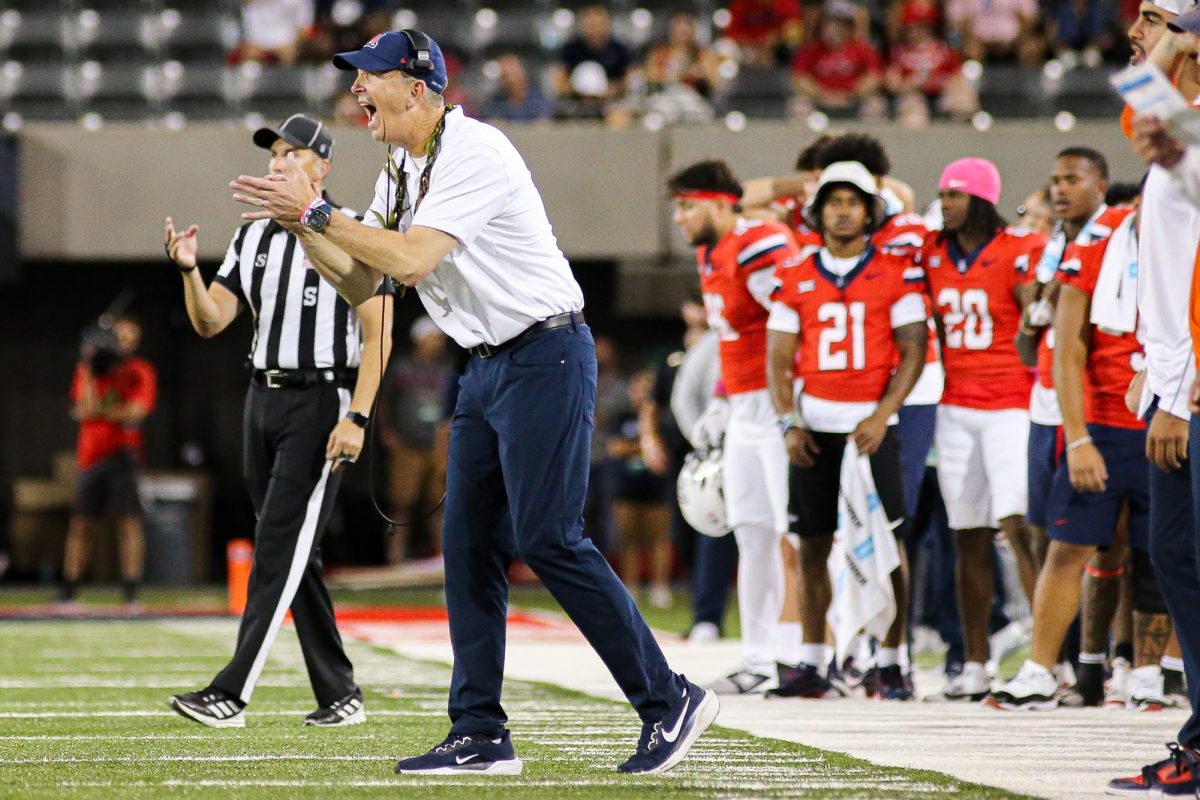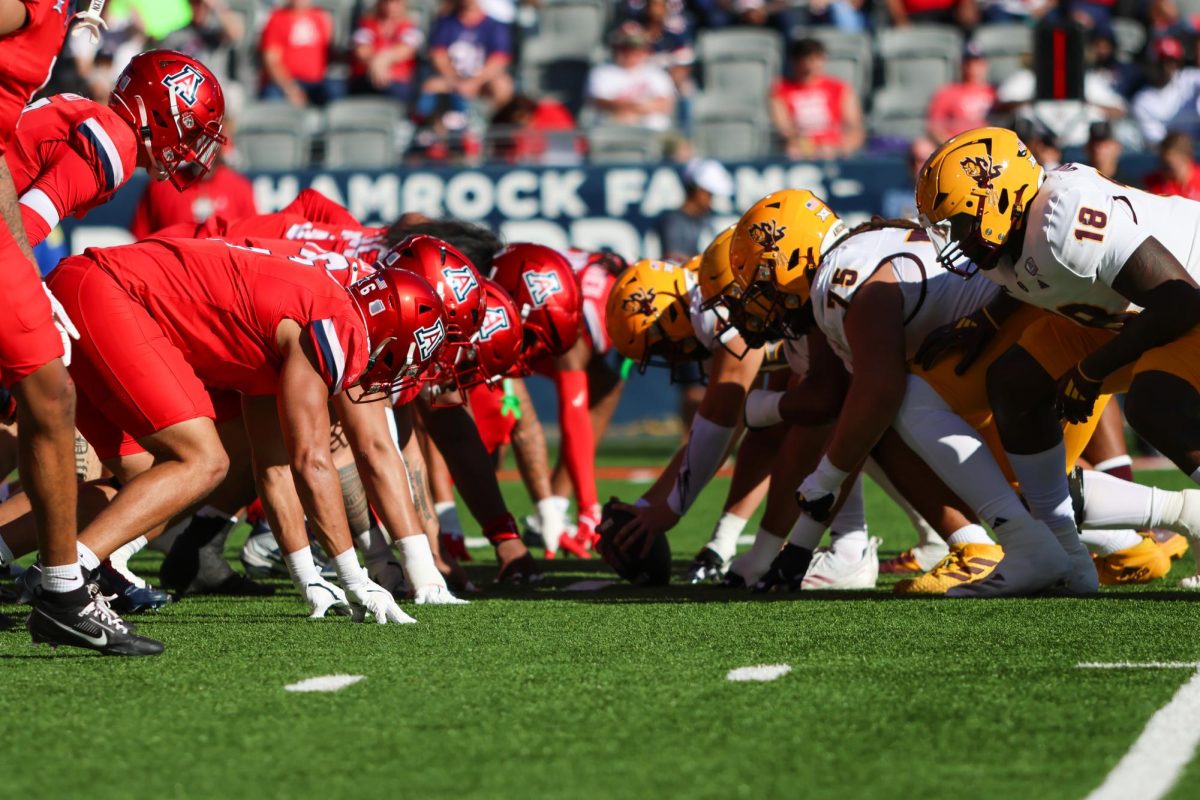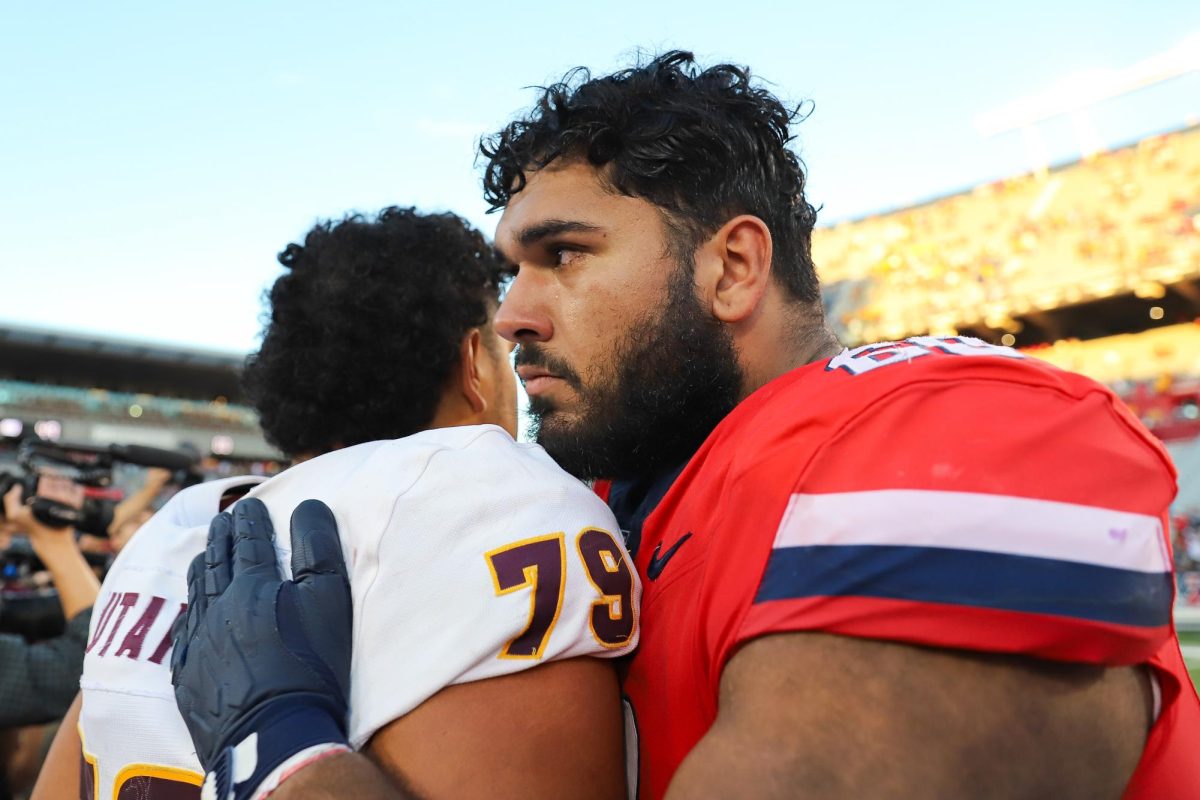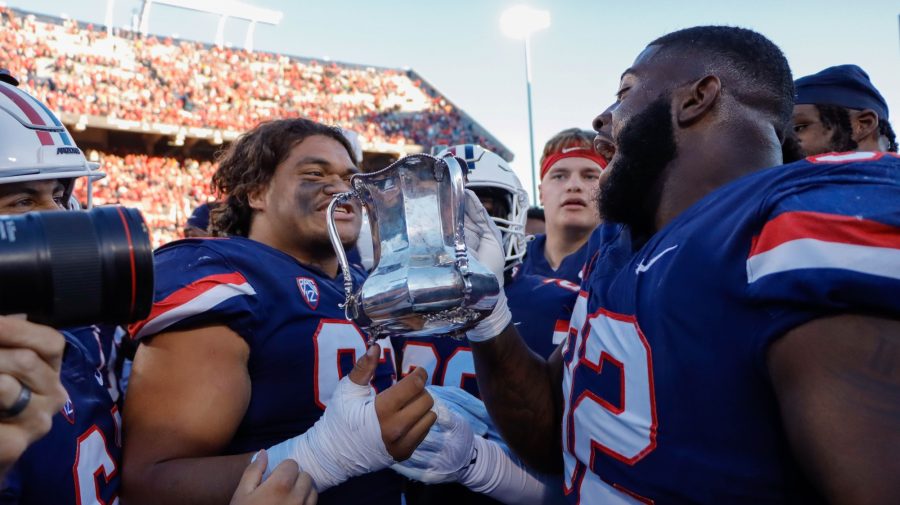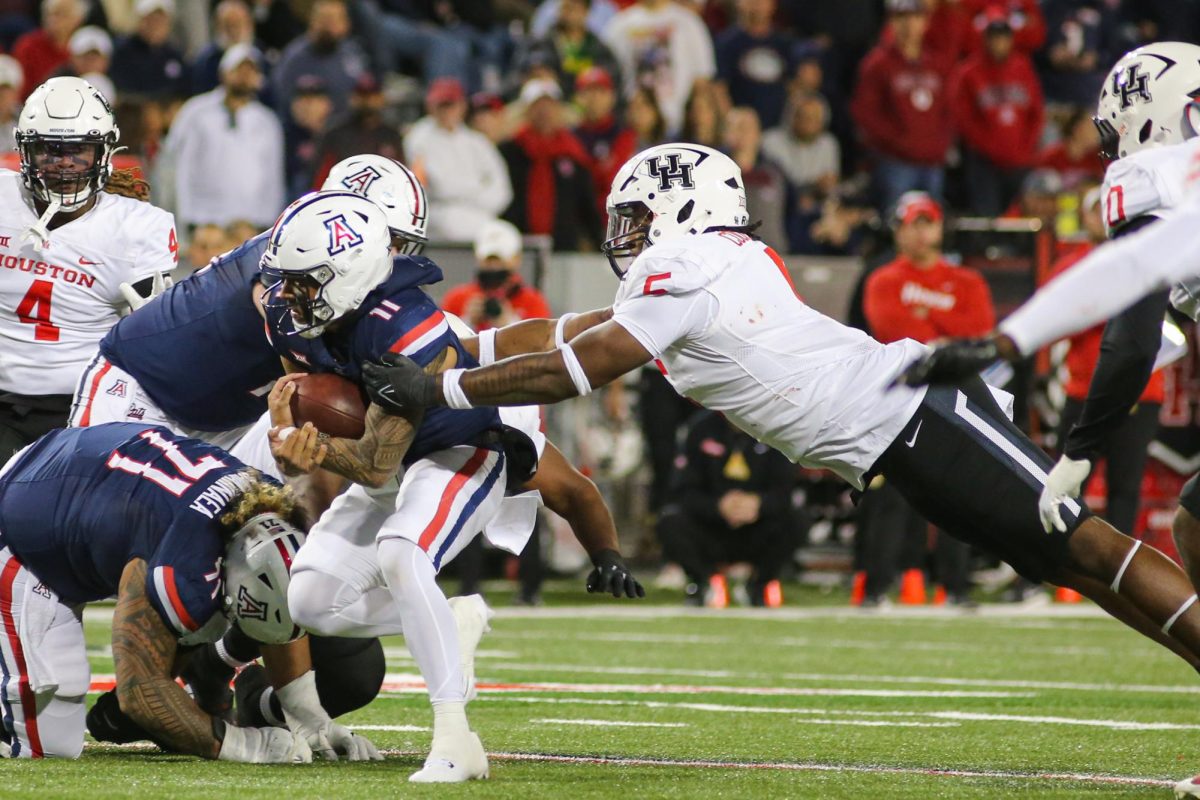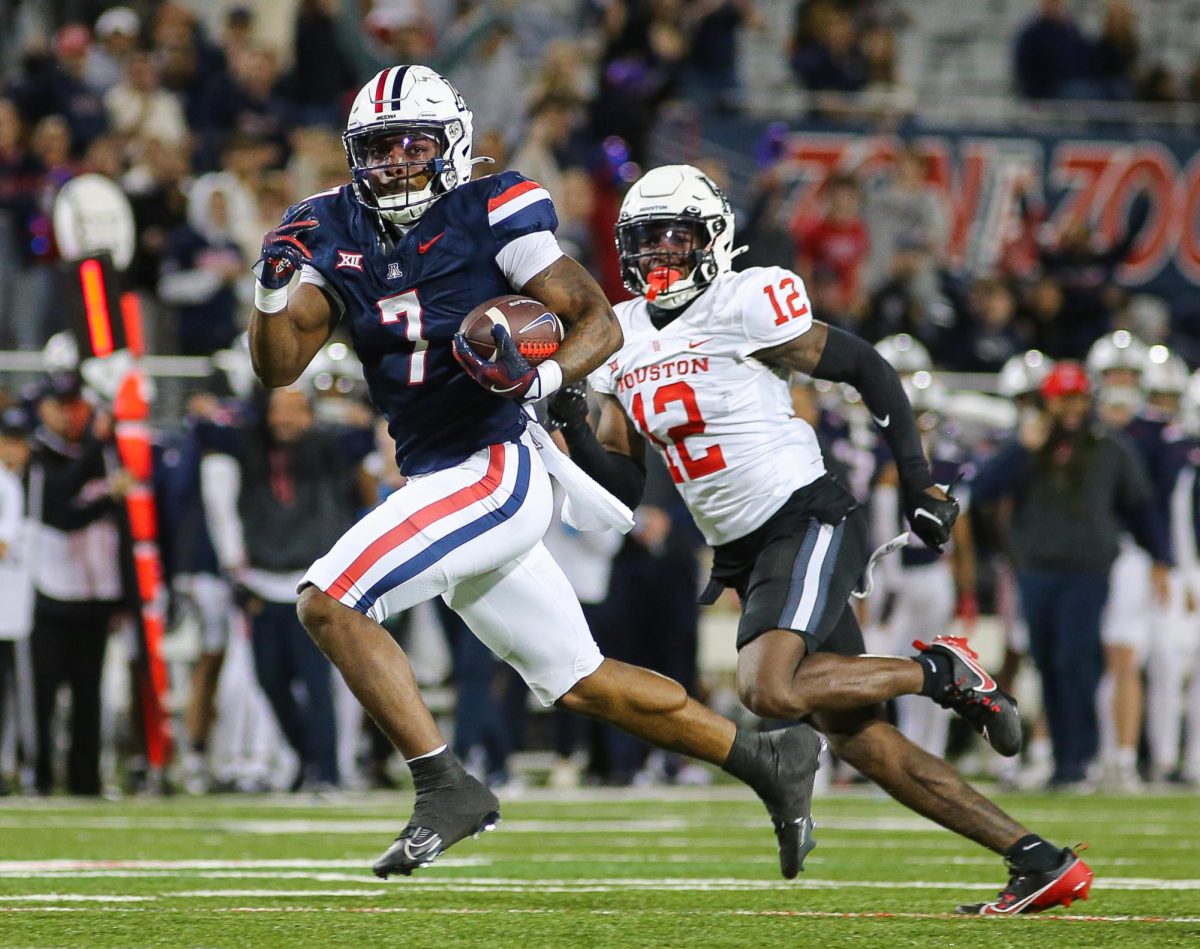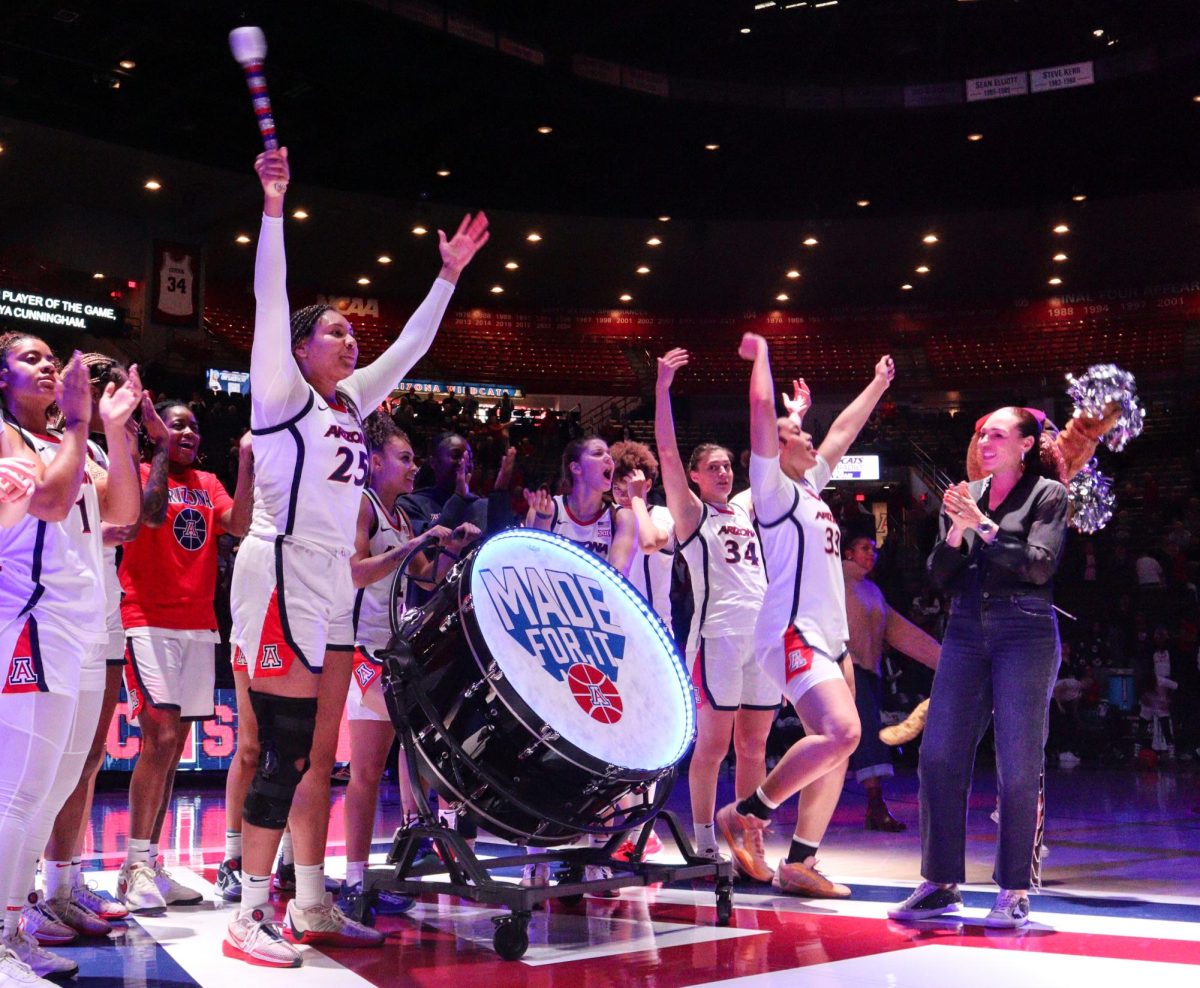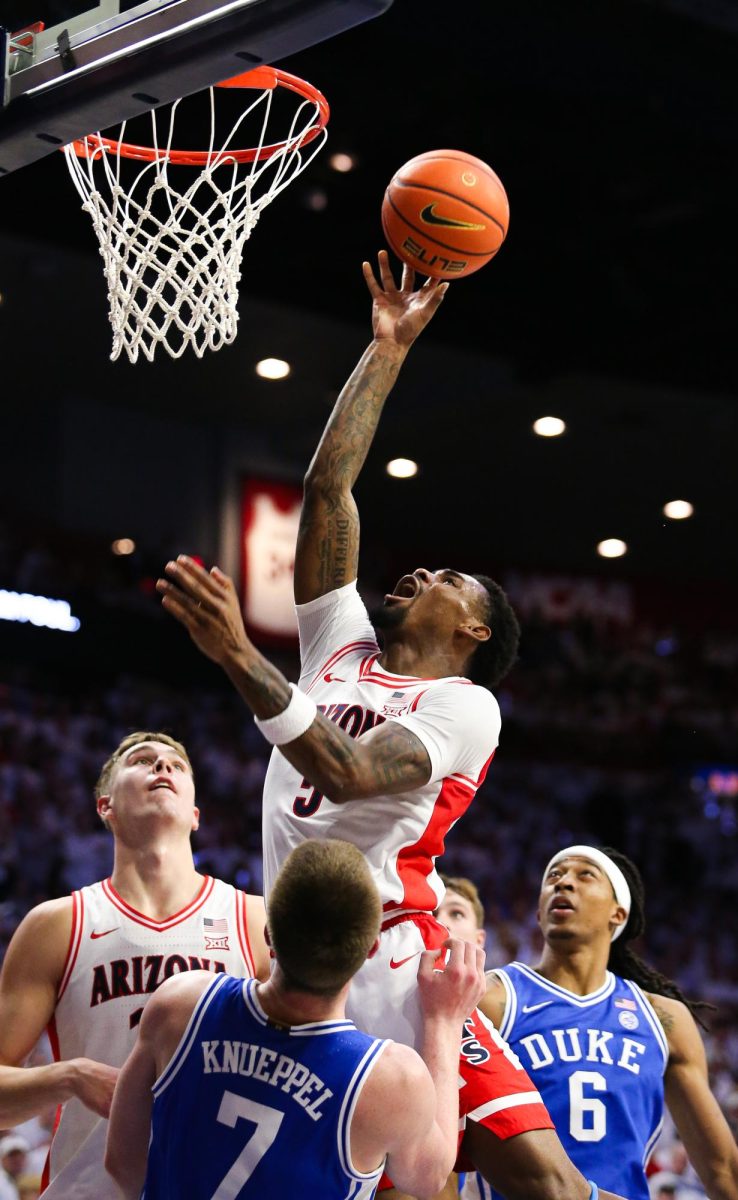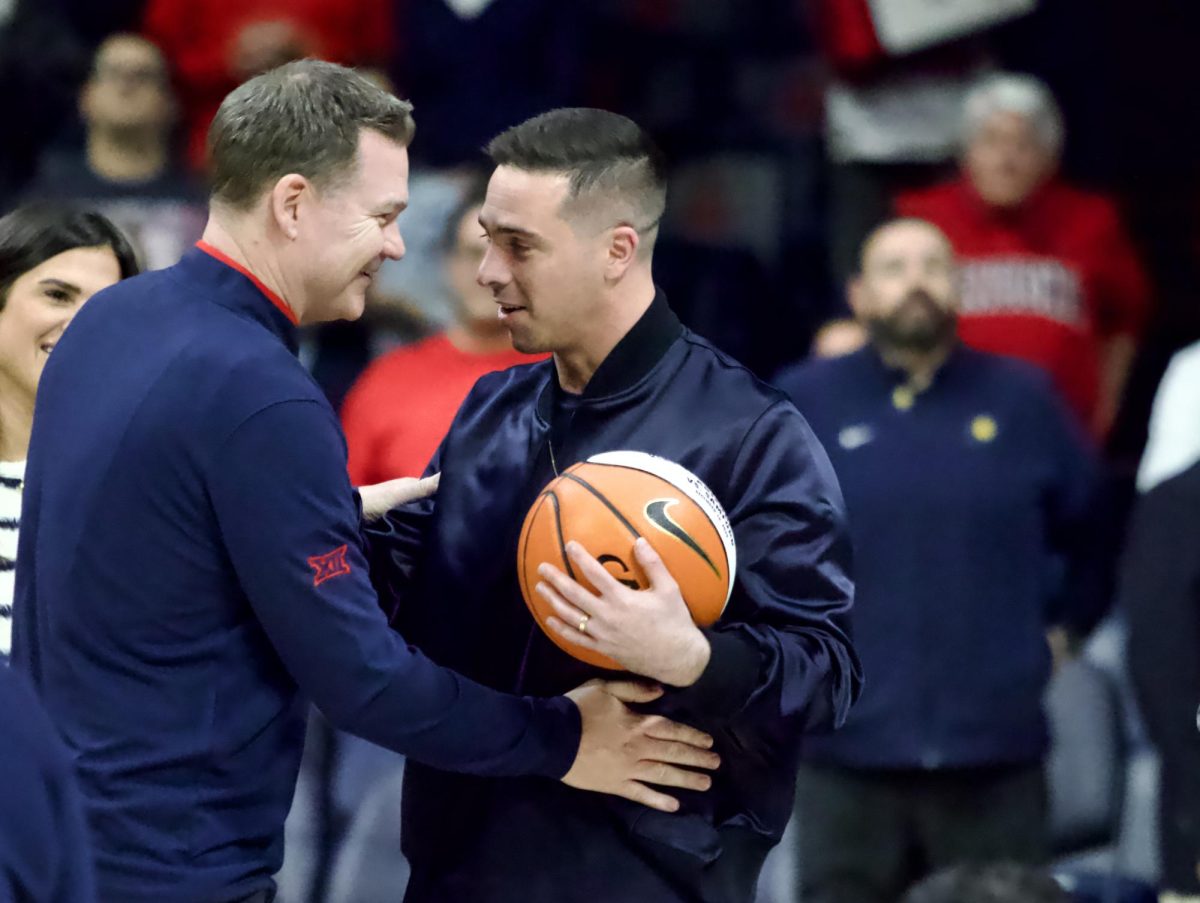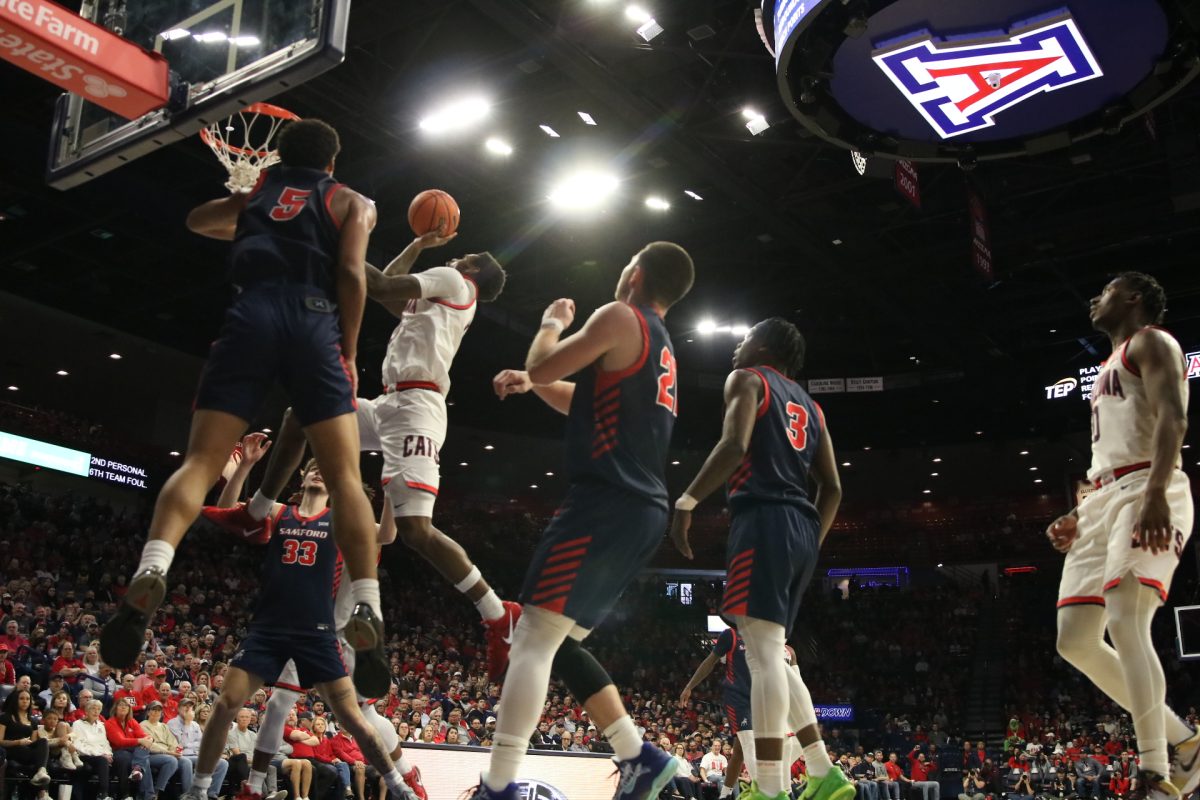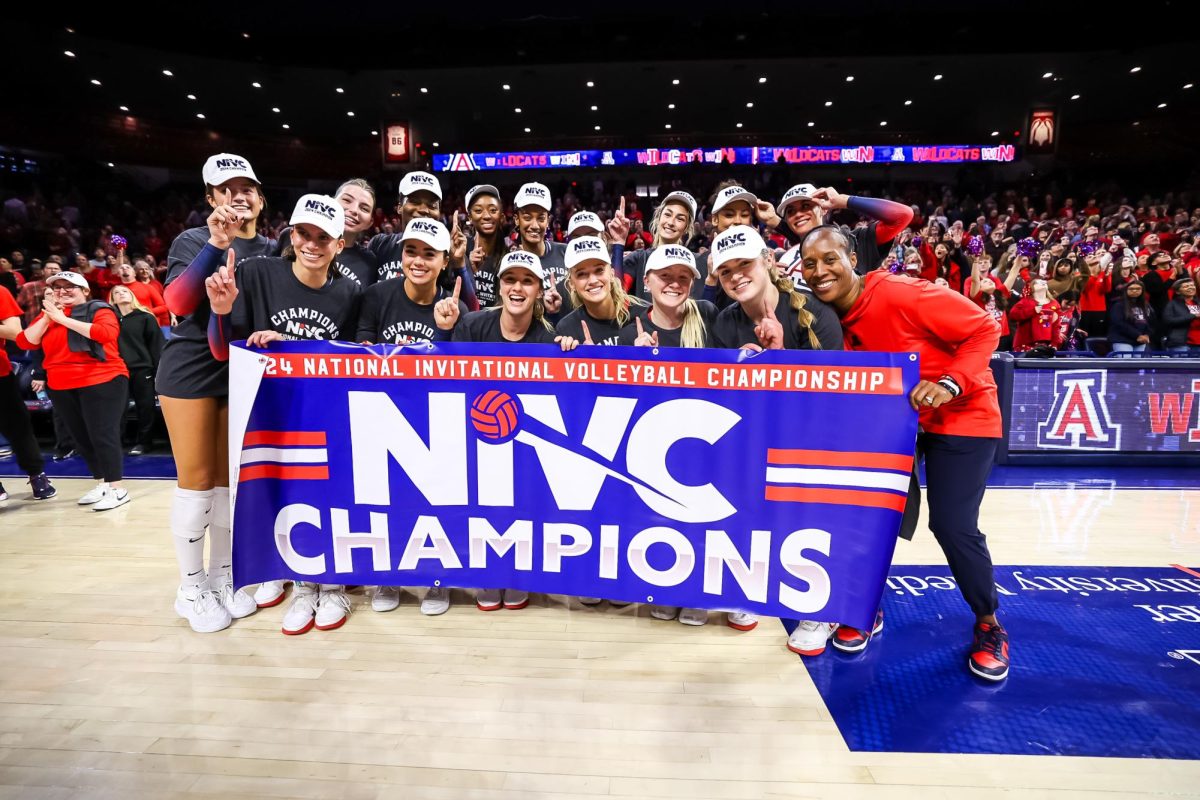The name Ken Griffey III might sound familiar. As in, the son of Ken Griffey Jr.
This Griffey isn’t a baseball player, though.
He’s a redshirt freshman wide receiver for Arizona, and he doesn’t go by his given name. Trey Griffey, the nickname for the third member of this line of men that share the same name, has gone down a different path than his Major League Baseball lineage, where his Dad is a surefire Hall of Famer.
“Trey is, overall, a good person,” said fellow redshirt freshman Javelle Allen. “I try to work out with him because he’s always pushing me. I always try to stay next to him and get better next to him in the weight room.”
In 1987, at the tender age of 18, Griffey Jr. was the first overall pick in the MLB draft by the Seattle Mariners. Over the next two decades, Griffey Jr. would become one of the most feared and respected players in the league. So revered was Jr. that, in 1994, the Mariners offered his newborn son Trey a contract dated for 2012.
Now 19 years old, Griffey has chosen not to follow the path paved by his forefathers. Instead, he came to Arizona to follow his heart – and football.
“I didn’t really love baseball,” Griffey said. “I will always appreciate it, but football is my passion.”
Griffey could have simply taken the baseball contract and tried to make a name for himself through his father. But he didn’t, and it hasn’t been easy for the redshirt.
Once at Arizona, Griffey worked hard to understand Rodriguez’s high-tempo offense. But after the third game of the season, the freshman was told he was being redshirted. Griffey, a little disgruntled, began to receive guidance from current teammate and former redshirt wide receiver Austin Hill.
“I wasn’t disappointed because lots of freshmen redshirt, but I was stressed,” Griffey said. “[Hill] knows all the plays inside and out, and he came to me and relaxed me — told me everything is going to be alright and that [the redshirt] will help you out in the long run.”
Hill redshirted his freshman season in 2010 and had a breakout 2012 in head coach Rich Rodriguez’s first year, catching 81 passes for 1364 yards and 11 touchdowns. Hill knew what Griffey was going through and encouraged Griffey to focus on the future, because that’s what matters most.
“As a freshman it can be a little confusing to pick up a new system, especially one like Rodriguez’s,” Hill said. “But he’s done a really good job since being told he was going to redshirt.”
Learning Rodriguez’s no-huddle, spread-option offense system is where Griffey needed the most help. Born with athletic genes, the freshman needed to become more prolific with routes to get on the field. And just because he has a recognizable name on the back of his jersey doesn’t mean he was treated any differently.
With more experienced receivers like Hill, Tyler Slavin, David Richards and perhaps senior Terrence Miller, who is in the process of requesting a medical redshirt on the depth chart ahead of him, touches will be sparse for Griffey in 2013. But Griffey didn’t come to sit on the bench. When quarterbacks coach Rod Smith recruited him to the UA, after first recruiting him to Indiana while a member of the Hoosiers’ staff, he wanted to make an impact for the Wildcats.
So in his redshirt year, Griffey worked hard in the weight room and hit the books to study Rodriguez’s offense.
Griffey says he feels comfortable out on the field and in the film room. Hill even remarked that Griffey has become the go-to guy for calling out routes and plays, and Rodriguez has taken note.
“I’m sure everything is still happening fast for him,” Rodriguez said, “but when you tell something to Trey or coach him up, you can tell he carries it over to the drill or team part of practice. He’s very coachable, and there’s no question I think he’s going to be able to help us this year.”
Rodriguez called this year’s wide receiver corps “the most experienced,” meaning Griffey has a lot of competition in front of him. But it’s still early enough for him to make an impression.
“There isn’t even a depth chart yet, but they’ve told me and all of us that as long as you learn your position you should be good,” Griffey said. “But there’s competition everywhere, and you can’t afford to come out one day and not show up the next. If you want to start, you got to work hard — no matter if you’re a redshirt or not.”




